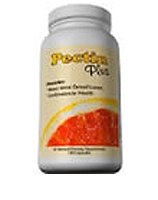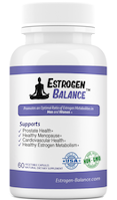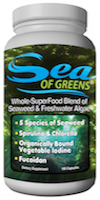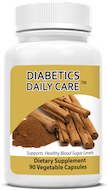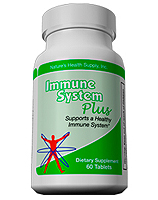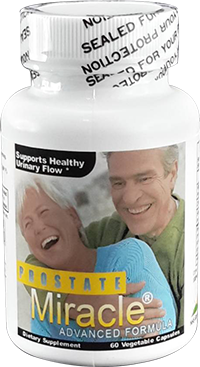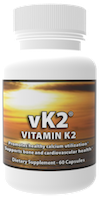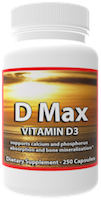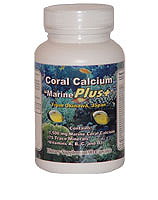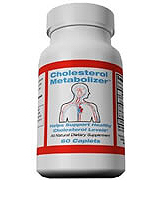What is Saw Palmetto?
Saw palmetto (also known as Serenoa Repens) is a low-growing, small palm tree with fanlike, fingery fronds and small berry-shaped fruits. Saw palmetto is native to and grows exclusively in the USA . . . primarily in Florida and near by vicinities.
Saw palmetto berries mainly consist of carbohydrates, phytosterols, fixed oils (free fatty acids and their glycerides), steroids, flavonoids, resin, pigment, tannin, and volatile oil.
Native Americans, such as Seminole Indians have been eating saw palmetto fruits for at least 12,000 years.
Despite their pungent taste . . . these Indians recognize saw palmetto fruits as both a food and
health support.
Prostate Miracle® Advanced Formula contains 3,000 times more beta sitosterol than Saw Palmetto
Though saw palmetto has been used for centuries, it is important to note that the amount of beta sitosterol contained in saw palmetto is a mere 1/3,000 of the amount contained in one capsule of Prostate Miracle® Advanced Formula. You would have to consume over a pound of saw palmetto berries or over (200) 500 mg capsules of saw palmetto extract to get the equivalent amount of beta sitosterol contained in a single serving of Prostate Miracle® Advanced Formula.
The following exerpt from the ABC news website is based on a recent study published in the he New England Journal of Medicine:
Saw Palmetto Called Ineffective . . .
By SIRI E. NILSSON Feb. 8, 2006
Saw palmetto, an over-the-counter herbal therapy used by more than 2 million men
to support prostate health, may be no more effective than a placebo, according to a study published in this week's issue of The New England Journal of Medicine.
The study followed 225 men who had
prostate challenges. Half of the men were given saw palmetto twice a day, and half were given a placebo.
At the end of one year, the men taking saw palmetto showed no significant improvement
compared to the placebo group.
The findings were welcomed by some doctors who said they felt all along that saw palmetto didn't work. Dr. Jacques Carter, at Beth Israel Deaconess Medical Center in Boston, said he has observed in his own clinical practice that saw palmetto is virtually ineffective. "In nearly every instance, my patients reported little if any improvement of the symptoms on this supplement," Carter said.
And Dr. Carl Reese, at Pennsylvania State University College of Medicine, hopes the new finding can convince patients to stop wasting money on saw palmetto. "Millions of dollars are spent each year by men on this product and it may not be of any benefit," said Reese. "This article will help the argument that they are wasting their money."
Saw Palmetto may actually be Harmful to your Prostate
Three recent scientific studies, surprisingly indicated that saw palmetto may actually harm your prostate health! These studies, which were investigating the effect of saw palmetto on prostate tissue all came to the same conclusion: Saw palmetto has an effect similar to chemotherapy on prostate cells - it kills both unhealthy and healthy cells!
-
One study published in
Prostate examined the effect of saw palmetto on stroma cells (the framework cells that build supportive tissue) and on epithelial cells (those which line the glands and ducts of the prostate). The study was done on normal prostate tissue and on BPH tissues from patients treated with and without the saw palmetto. The conclusion was that saw palmetto damages the nuclear and mitochondrial membranes, and causes cellular death in the epithelium and stroma.
- Another study published in the
Journal of Urology investigated the effects of saw palmetto on primary cultures of fibroblasts (cells that produce connective tissue), and epithelial cells from the prostate, epididymis (the tube that provides for the storage, transmission and maturation of sperm), testes, kidney, skin and breast to determine if the action of saw palmetto is selective and specific to prostate tissue. This study concluded that saw palmetto caused damage and death in prostate tissue, though there were no similar changes observed in other types of cells.
- A third study published in
Prostate examined the effect of saw palmetto on benign prostatic hyperplasia (BPH). Again, the results showed there was widespread damage of intracellular membranes, including mitochondrial and nuclear membranes in both healthy and overgrown prostate tissue.
In light of this new information, it seems prudent to avoid saw palmetto.
Its potential toxicity to healthy prostate cells is reason enough to be concerned about taking it, which is one reason why Prostate Miracle® Advanced Formula contains NO saw palmetto.
The other reason is that the form of beta sitosterol contained in Prostate Miracle® Advanced Formula is 3,000 times more powerful than Saw Palmetto anyways.
